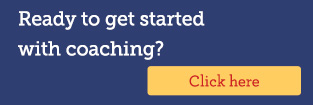This article is going to introduce a simple but powerful principle that can help you study more effectively for any given class or exam and achieve academic success. The principle is called “deliberate practice” and research has shown it to be the key to learning new things and building all types of skills: academic, athletic, musical, and more.
 But first, let’s address two commonly held views about studying and academic success in general.
But first, let’s address two commonly held views about studying and academic success in general.
1. Some people are just “naturally” talented and intelligent. For them, school will be much easier.
My view is that this is more false than true
2. The harder you work, the more successful you’ll be.
My view is that this is more true than false, but potentially misleading.
Research has shown that many geniuses – I’m talking about people like Mozart, Albert Einstein, Michael Jordan, Bobby Fischer (the chess champion), actually spent 5%, 10%, 20% or more time studying their craft than others in their field. Anders Erickson, an expertise researcher with a PhD in Psychology, who has been frequently referenced in many popular books about the true nature of what we call “talent” came up with a rule (which he’s subsequently admitted can be off base in some cases), but which in general he still stands by, which says that people striving to become experts invest 10,000 hours of practice before becoming experts. That’s why point #1 above is more false than true. The kid sitting next to you in class who seems to just naturally understand everything without really trying is, much more likely than not, going home and studying a lot every single night. He may want to make you think he’s “just smart,” but he’s probably been diligently studying for most of his life.
But Erickson’s research, also stresses that, perhaps more importantly, the key to developing expertise and acquiring knowledge isn’t just putting in the time and working hard. You must work hard and in a specific manner, which he calls “deliberate” or “deep” practice. The idea, in its simplest form, is to be highly intentional and focused on learning – active, not passive.
The general expanded “deliberate practice” formula has five or so components:
- Be highly focused on learning and fully engaged.
- Break the skill down to its most fundamental component parts, master each of those steps first, and never stop practicing these fundamentals.
- Embrace mistakes, as mistakes with feedback is how you are going to learn.
- Work with an expert academic coach, tutor or mentor, who can provide you with accurate, immediate feedback when you make a mistake.
- Push yourself to the limit, trying to accomplish (or understand) even when it feels impossible, embracing the process of making a mistake, getting feedback, learning, and repeating.
And then, repeat.
Interestingly, because deliberate practice is supposed to be very hard and mentally draining, you can only do it for short bursts of time, otherwise you’ll lose focus.
Incorporating Deliberate Practice Principles into Your Study Routine
As CEO of MyGuru, I run into many types of students. Some really have the class or topic nailed, and are just looking for extra help to go from an A- to an A or A+. But, the most rewarding cases are those in which someone has been diligently putting in hard work, but is still struggling to achieve academic success. Oftentimes, they might already be following points 1 and 5 above. They are focused, and they are pushing themselves. But, they aren’t able to navigate points 2, 3, and 4 effectively, so they aren’t progressing. Common mistakes include struggling to just “get” concepts that are relatively advanced, when you aren’t 100% clear on 2-3 more fundamental concepts, or doing large numbers of practice problems without checking for accuracy, and in effect, actually building bad habits (i.e., doing more harm than good by studying more!)
By introducing a private tutor or an Executive Function coach to the equation, concepts and questions can be explained in different ways (point 2 above) and immediate accurate feedback can be provided (points 3 and 4).
Ah, but private tutoring and academic coaching can be expensive. Fortunately, there are relatively simple, free ways to accomplish much of what I just described above without a human coach or tutor.
Here are six ideas for incorporating deliberate practice into, for example, the process of studying for the mathematics portion of the SAT.
- Be focused, and embrace the struggle for understanding. When you feel like you are mentally banging your head against the wall and are nowhere near understanding the concept or problem, your brain is actually working hard to piece the information together. Don’t give up, just keep thinking. We don’t really know exactly how the brain works. The struggle you engage in today might be why things “clear up” and you “get it” tomorrow morning…
- ….rule number 1 is so important that I need to include a rule #2, which is similar, but stated from the opposite perspective. Avoid at all costs the process of unfocused, passive studying that so many of us engage in. If the TV is on, you are texting your friends, and you are just trying to get through the homework so you can say it’s done, there may be such a small amount of learning going on, you might as well not be studying.
- Only do 3-5 problems before checking to see whether you answered them correctly or incorrectly. When/if you miss a question, read the answer explanation, and make sure you fully understand your error.
- Always start every new study session with a review of “easy” problems. Never neglect the fundamentals.
- Don’t study for more than 60 minutes at a time without a break. Your brain needs to refresh, as learning is mentally draining.
- To jumpstart the process of receiving accurate, immediate feedback without a private tutor or academic coach, consider an online prep solution with video explanations, like the SAT prep offered by our partner Magoosh. What happens here? Well, although there’s no tutor working with you, you can attempt a problem, and then watch a video of the solution if you get it wrong. Immediate, visual feedback.
I recently wrote a free eBook called The 7 Rules of Academic Performance, and studying deliberately shows up as rule #2, and although the rules aren’t necessarily in order in that book, consistent deliberate studying is absolutely one of the most important components of academic success.
For a free consultation about our academic coaching services, click the button below.
About the Author
Mark Skoskiewicz is the CEO of MyGuru, a provider of 1-1 tutoring and test prep for many standardized tests, including the ACT and SAT. He’s passionate about empowering students to develop their academic skills independently, and believes the evidence is clear that intelligence can be built methodically over time.
Find out more about academic coaching versus tutoring.
Photo credit: Pro Literacy via flickr

